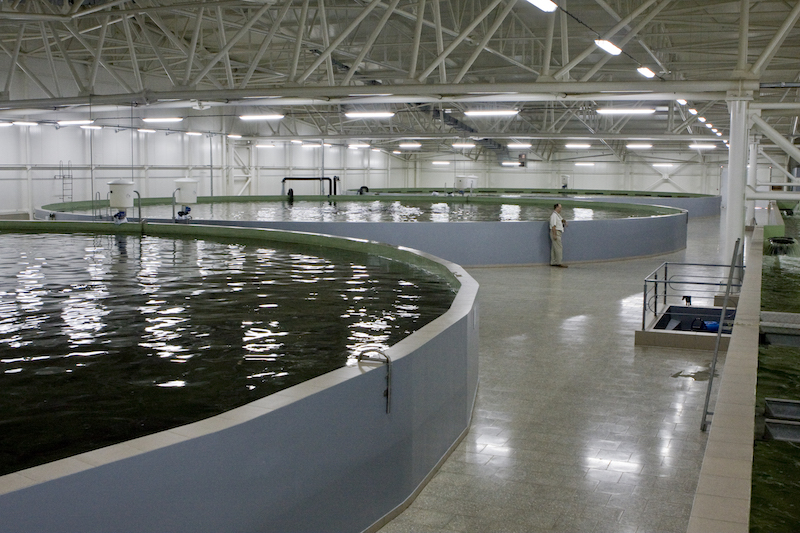
Training highlights zero-discharge aquaculture
July 10, 2017
By Ruby Gonzalez
 The University of Missouri's Bradford Research Center will offer a two-day training on sustainable aquaculture Sessions will cover indoor
The University of Missouri's Bradford Research Center will offer a two-day training on sustainable aquaculture Sessions will cover indoor
Training on ‘Sustainable seafood production in the Midwest’ will be offered at the University of Missouri (MU)’s Bradford Research Center on July 11 and 12.
The training will provide an overview of shrimp and fish production of large-mouth bass, crappie, catfish, marine and freshwater shrimp, ranging from low-intensity ponds (at 500 lb/acre/season) to super-intensive, clear-water, green-water and brown-water closed-system aquaculture processes (at 20,000-35,000 lb/acre/cycle).
Sessions will highlight zero-discharge technology. “Using techniques presented and discussed in the in-service education module, aquaculture production could be provided with no discharge of pollutants to US surface or ground water and without the need to import expensive fishmeal as a component in aquaculture feed. Midwestern farmers could potentially provide a 100-percent American-grown seafood supply — eliminating a trade deficit of $11.5 billion per year — using 100-percent American-produced soy, wheat and corn meals as feed,” said David Brune, professor at MU’s Bioprocess and Bioenergy Engineering Division of Food Systems and Bioengineering, who will conduct the training.
Sessions will cover indoor, greenhouse covered, and in-pond shrimp and finfish production techniques targeted to farmers in the Midwest. The economic aspects of aquaculture will also be discussed, such as required capital investment, fish transport, marketing and sales, cash flow, and profitability.
Participants include educators, farmers, investors, and other stakeholders. They will go on field trips to view pond production of freshwater shrimp, in-pond raceway production of crappie and catfish, and indoor recirculating aquaculture of large-mouth bass and super-intensive zero-discharge production of marine shrimp. They will also have hands-on opportunity to experience system feeding, waste-solids handling and water-quality analysis, among others.





